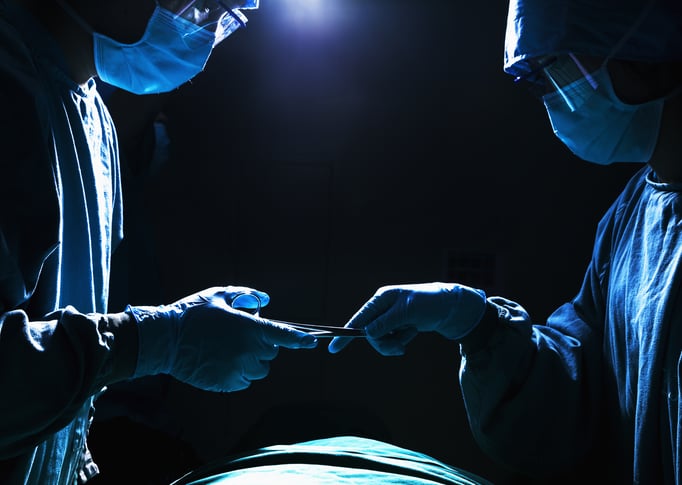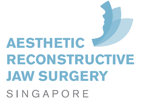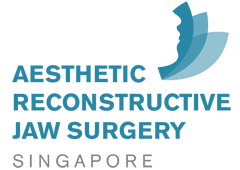Share this
How to afford corrective jaw surgery in Singapore?
on April 29, 2015
 So you have decided that you need and want corrective jaw surgery....
So you have decided that you need and want corrective jaw surgery....
Just walking around, I see people with jaw deformities everywhere (occupational disease). Deformities that can be readily corrected with orthognathic surgery, which can be quite transformational not just in terms of appearance but in psychology, self-confidence, etc. So, why do so many people not do it? Well, the good news is that not everyone with a dentofacial disharmony thinks that they have a problem, or if they do, are not bothered by it. Afterall, it is not a life-threatening condition. However, there are quite a number who need and want the surgery but cannot afford it. For this group, the question is how to afford the corrective jaw surgery in Singapore.
What makes up the cost of corrective jaw surgery in Singapore?
In private hospitals, there are two independent sets of charges. One is the specialists' professional fees and the other is the hospital charges. In all Singapore private hospitals except one, the specialists are not employed by the hospital but are independent practitioners. They run their own practices and set their own fees. The hospital functions like a facility provider, and makes money from patients availing of their operating rooms, wards, equipment, nurses, etc. The average bill size for a double jaw surgery is about $35000-40000, of which about half are due to hospital charges and the other half due to the surgeons and anesthetist. In most cases, there are usually two surgeons, one main and one assisting, and one anesthetist.
In public hospitals, or restructured hospitals which the government calls them, the hospitals employ all the doctors and pay them a fixed salary plus profit share in the professional fees that they charge private patients, ie those who chose Class B1 or A wards. Comparatively, corrective jaw surgery in a Singapore restructured hospital as a private patient is perhaps 10-20% less than in private hospitals. However, if one chooses to be a subsidised patient, ie choosing a B2 ward, the charges are probably more than 60% lower.
So, the more affordable path to have corrective jaw surgery in SIngapore, or for that matter, any surgery, is to have it done in a restructured hospital. So why do people go to private hospitals to see private specialists? Afterall, in Singapore, the standard of care is technically the same as we are all held to the same standards. The primary reason why patients seek private care is for the level of personalized service that a private practice can provide and the reputation of the specialist and hospital that they choose.
Going private....
Because corrective jaw surgery is an elective procedure, there is no constraint of time. As such, you should choose a surgeon base on whether you agree with his diagnosis and treatment plan as well as whether you have a good rapport with him. Time is on your side. If you don't feel comfortable with the surgeon, feel free to seek a second opinion or maybe even a third. Do not let cost get in the way in the beginning. If a particular surgeon comes highly recommended by your orthodontist, get a consultation even if you think he is going to be expensive. After exploring the available options, you can then make a decision as to which surgeon is best for you. At this point, you can consider the cost factor. If there is a surgeon whom you trust and is more affordable, then it makes perfect sense to choose that surgeon. But if the most expensive surgeon is the one you want most, you can explore ways of affording his services.
1. Installment plan
Discuss with your surgeon the possibility of an installent plan. Some credit card companies offer interest free installments. Some practice also offer installment payment. However, this will only apply to the surgeon's professional fees. Private hospitals do not offer installment plans and they typically collect 90% of the projected hospital charges upfront at the point of admission. So, even if your surgeon has an installment plan, you'll still need to pay about $17000-20000 upfront.
2. Medisave
Medisave can be used to pay for corrective jaw surgery and it ranges from $3150 to $7550 depending on the actual procedure done. For each day in the hospital, a limit of $450 can be withdrawn from your Medisave account as well. For a double jaw surgery, the total amount that can be paid through Medisave is about $8000.
3. Insurance
Some patients have very broad insurance coverage and are able to claim part of the costs through insurance. However, you'll need to check with your insurance company whether your policy will cover this surgery. Your surgeon will provide you with a letter to your insurance company for pre-determination. If the insurance company covers it, they will provide you with a guarantee of payment to the hospital. However, in most cases, the patient usually pays first and seek reimbursement from the insurance company.
4. Become a "public" patient in a private practice
There are many reasons why restructured hospital charge less than private ones. One of the reasons is that they are teaching hospitals. This is where the next generation of specialists are trained. One of the conditions for subsidized treatment in restructured hospitals is that the patient cannot choose his own specialist but have the specialist assigned in accordance with the hospital's roster. Usually, a resident/registrar ie trainee, will be assigned to a case under the supervision of a consultant ie a board-registered specialist. The level of involvement of the trainee varies depending on the stage of training he is at. For example, if it is a first year trainee, his role may be to take care of the peri-operative care of the patient and assisting the consultant in the surgery, while a final year trainee may be doing everything including the surgery quite independently under the watchful eyes of his consultant.
Private hospitals, however, are not teaching hospitals and there are no trainees. Your specialist takes care of all your needs personally, including coming back to the ward in the middle of the night if necessary. There are no trainees to take care of the intermediary needs.
However, there is a growing demand from oral maxillofacial surgeons from neighbouring countries to learn orthognathic surgery from Singapore. Some Singapore surgeons in private practice organize "demonstration" cases for surgeons from neighbouring countries for teaching purposes. These foreign surgeons are not licenced to practice in Singapore and as such are not allow to be involved in any form of patient care. They can, however, be allowed to observe the surgery as well as the pre and post operative care. Because these foreign surgeons pay fees to observe, this can be used to "subsidize" the professional fees for the patient. Patients who volunteer to be "demo" patients will be able to get a substantial reduction in the surgeon's fee. This is another way to lower the overall cost of surgery. Your surgeon will still be doing everything in a private hospital but you lose a bit of privacy.
Decision...
So, in a nutshell, you need to find a surgeon that you trust. That should be the first priority. Corrective jaw surgery is elective and you have all the time to consider. If you happen to find a surgeon in a restructured hospital that can do the surgery for you as a subsidized patient and you don't mind if the trainees partake in the surgery, that will make the most sense financially. However, if the one you trust most happens to be in private practice and his fees do not fit your budget, you can always save up to do the surgery later. Alternatively, you can try to explore ways of financing the surgery with your surgeon. I am not suggesting that you "bargain" like in a fish market but most surgeons are actually quite keen to help. Let me tell you a secret. We are in this profession because we enjoy doing surgery. We like to call it work so that we can get paid. So, it is sometimes possible to work out a flexible payment plan or doing it as a "demo" or some other arrangement to make it more affordable. The hospital charges, unfortunately, is usually non-negotiable and you'll still have to fork that part out upfront. Bottomline is, don't settle, because corrective jaw surgery is not just a functional procedure, it is also cosmetic, and for that, a mutual understanding with your surgeon is of paramount importance.
Share this
- Jaw Surgery (93)
- Dental Implants Singapore (90)
- Orthognathic Surgery (48)
- Replacing Missing Teeth (26)
- Missing Teeth Options (23)
- Underbite (23)
- Bone Grafting (21)
- Costs (18)
- Facial Aesthetics (18)
- Aesthetics (17)
- dental implants (16)
- corrective jaw surgery (15)
- BOTOX (11)
- Dermal Fillers (11)
- Wisdom teeth (10)
- Fixed Implant Dentures (8)
- Loose Dentures Singapore (6)
- Medisave (6)
- sleep apnea (6)
- Braces (5)
- Dental Pain (5)
- Dentures in Singapore (5)
- Loose Teeth (5)
- Tooth Extraction (5)
- jaw deformities (5)
- bimax (4)
- bone graft (4)
- maxillomandibular advancement (4)
- all-on-4 (3)
- bimaxillary protrusion (3)
- chin implant (3)
- facial asymmetry (3)
- full mouth dental implants (3)
- genioplasty (3)
- immediate implant (3)
- removal of an integrated dental implant (3)
- third molars (3)
- wisdom tooth surgery (3)
- My Dentures Don't Fit (2)
- VME (2)
- bone graft healing (2)
- distraction osteogenesis (2)
- medical tourism (2)
- obstructive sleep apnea (2)
- orthodontics (2)
- plastic surgery (2)
- CT guided dental implants (1)
- Double jaw surgery (1)
- Invisalign (1)
- Periodontal Disease (1)
- Permanent Dentures Singapore (1)
- before and after photos (1)
- facial trauma (1)
- fractured dental implant (1)
- oral appliance therapy (1)
- root canal treatment (1)
- veneers (1)
- vertical maxillary excess (1)
- September 2019 (2)
- July 2019 (2)
- May 2019 (2)
- August 2018 (1)
- October 2017 (1)
- September 2017 (2)
- August 2017 (1)
- June 2017 (2)
- May 2017 (4)
- April 2017 (1)
- March 2017 (1)
- February 2017 (3)
- January 2017 (3)
- December 2016 (1)
- November 2016 (2)
- October 2016 (4)
- September 2016 (9)
- August 2016 (5)
- July 2016 (11)
- June 2016 (14)
- May 2016 (6)
- April 2016 (2)
- March 2016 (1)
- January 2016 (7)
- December 2015 (10)
- November 2015 (4)
- October 2015 (9)
- September 2015 (7)
- August 2015 (1)
- July 2015 (6)
- June 2015 (3)
- May 2015 (7)
- April 2015 (5)
- March 2015 (8)
- January 2015 (5)
- December 2014 (7)
- November 2014 (7)
- October 2014 (6)
- September 2014 (8)
- August 2014 (5)
- July 2014 (7)
- June 2014 (8)
- May 2014 (9)
- April 2014 (10)
- March 2014 (6)
- February 2014 (8)
- January 2014 (3)
Subscribe by email
Email subscription




Comments (1)